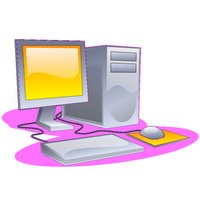 Adolescents and young adults (13–22 years of age) are often excessively sleepy.
Adolescents and young adults (13–22 years of age) are often excessively sleepy. This excessive sleepiness can have a profound negative effect on:
- school performance
- cognitive function
- mood
- increased incidence of automobile crashes
Excessive sleepiness - What are the causes?
The main reason adolescents don’t get enough sleep is that they simply don’t make enough time for it, because of early school hours, homework, part-time jobs, and other demands. The typical high school student falls asleep at 11 or later. One reason is that many teenagers cherish the late night as one of the few times they have all to themselves.
The “BEARS” screening is divided into 5 major sleep domains and provides a comprehensive screen for the major sleep disorders affecting children in the 2- to 18-year age range. Each sleep domain has a set of age-appropriate “trigger questions” for use in the clinical interview.
“BEARS”: A Sample Sleep History
B = Bedtime problems (Do you have any problems falling asleep at bedtime?)
E = Excessive daytime sleepiness (Do you feel sleepy a lot during the day? In school? While driving?)
A = Awakenings during the night (Do you wake up a lot at night?)
R = Regularity and duration of sleep (What time do you usually go to bed on school nights? Weekends? How much sleep do you usually get?)
S = Sleep-disordered breathing (Parent: Does your teenager snore loudly or nightly? Patient: Has anyone ever told you that you snore loudly at night?)
An algorithm can be used for diagnosing and treating sleep disorders. One sample assessment tool is shown below. Treatment should be directed at any potentially reversible process.
Excessive sleepiness - what to do?
- Adjust the lighting. As bedtime approaches, dim the lights. In the morning, expose your teen to bright light.
- Agree on a schedule, and stick to it. Tough as it may be, encourage your teen to go to bed and get up at the same time every day — even on weekends.
- Stop long naps. If your teen is drowsy during the day, a 30-minute nap after school might be refreshing. Be cautious, though. Too much daytime shut-eye might only make it harder to fall asleep at night.
- Set limits on electronic devices. Take the TV out of your teen's room, or keep it off at night. The same goes for your teen's cellphone, computer and other electronic devices.
- Relax. Encourage your teen to wind down at night with a warm shower, a book or other relaxing activities. Discourage stimulating activities — including vigorous exercise, loud music, video games, television, computer use and text messaging — an hour or two before bedtime.
- Limit the caffeine.
References:
Excessive Sleepiness in Adolescents and Young Adults. PEDIATRICS Vol. 115 No. 6 June 1, 2005 pp. 1774 -1786, (doi: 10.1542/peds.2005-0772), http://bit.ly/IcRr00
The Sleepy Teenager< - Harvard Health Publications http://hvrd.me/IcSJYO
Teen sleep: Why is your teen so tired? - MayoClinic.com http://mayocl.in/IcSZXV
Image source: A halo around the Moon. Wikipedia, GNU Free Documentation License.






